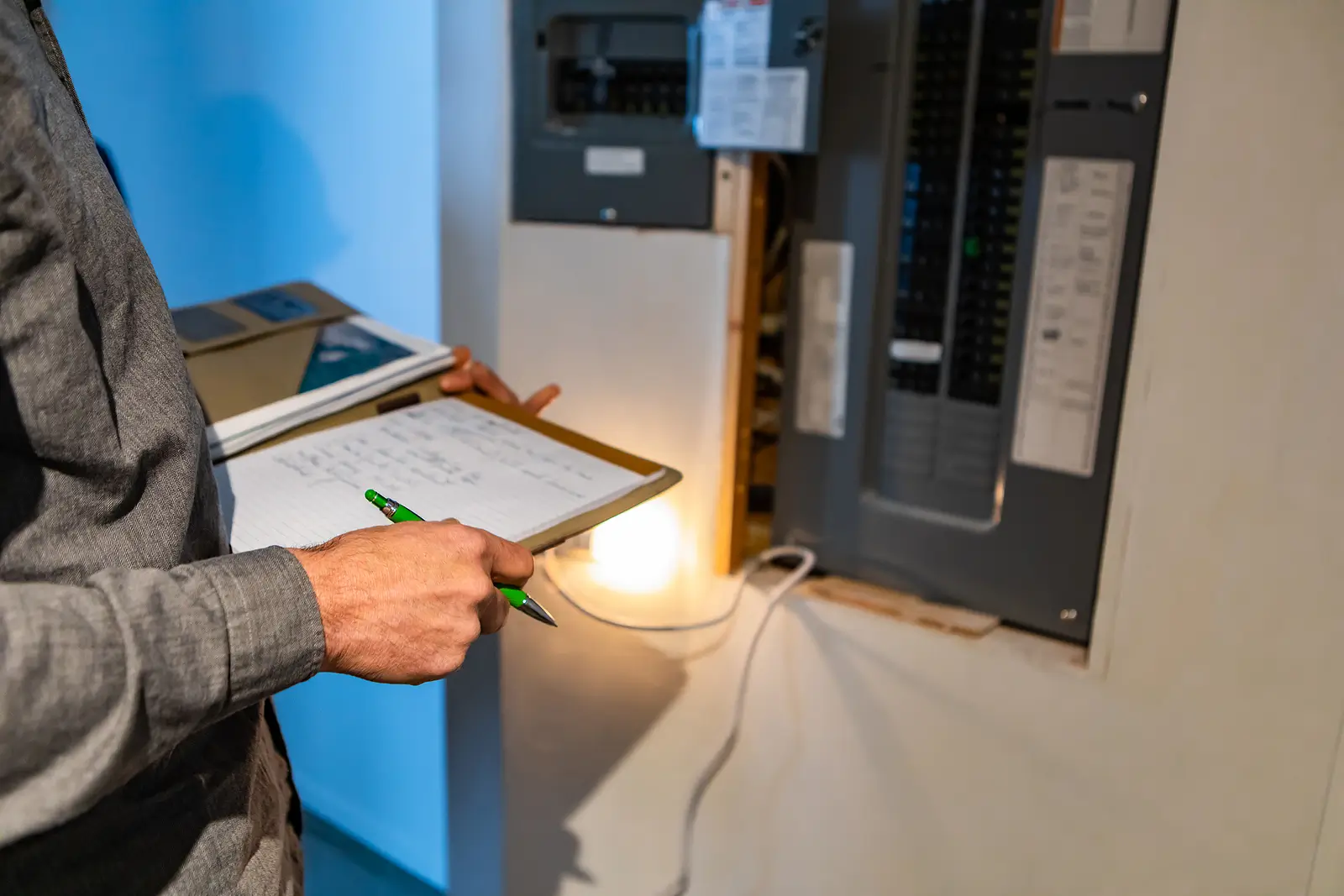When you own a rental property in Houston, TX, keeping it in top shape is not just a good idea; it's essential. Regular rental property inspections protect your investment, ensure tenant satisfaction, and prevent unexpected issues down the road.
In this blog, we'll explore why inspections matter, how often they should be conducted, what to look out for, and how to address any issues that arise. We’ll also touch on how our team at 1st Choice Property Management can make your life easier.
Key Takeaways
- Preserve your investment’s value through early detection of maintenance issues.
- Maintain tenant satisfaction and safety by promptly identifying and addressing concerns.
- Minimize risk and liability by staying informed about regulations and property conditions.
Why Regular Inspections Matter to You
Imagine coming home one day to find a water leak that has caused extensive damage, or discovering months later that mold has quietly spread inside the walls. That’s why regular inspections matter. Whether you're new to investing in Houston rental properties or a seasoned landlord, these checks help you:
- Catch small issues before they become big headaches. A tiny leak today can cost thousands in repairs tomorrow.
- Maintain high rental demand. Well-kept properties stand out in the Houston market and attract better tenants.
- Stay compliant with Texas landlord-tenant laws. Regular inspections help you meet safety and habitability standards and avoid potential legal issues.
- Protect your insurance coverage. Many policies require routine maintenance and documentation to support claims.
How Often Should You Inspect?
There’s no one-size-fits-all answer, but here’s a general guideline for Houston rental property inspection frequency:
- Move-in inspection – Document the property's condition before tenants arrive.
- First inspection (30–45 days in) – Ensure everything is working and the tenant is settling in.
- Routine inspections (every 3–6 months) – Check plumbing, HVAC, safety devices, and overall cleanliness.
- Move-out inspection – Compare the results of this inspection with the initial inspection, noting any damages, and determine the necessary cleaning or repair costs.
In Houston’s hot, humid climate, it’s smart to lean on the shorter side and aim for inspections every three months. This also gives tenants regular signposts that you care about the property.
What Should You Inspect?
Safety and Infrastructure
- Smoke and carbon monoxide detectors ensure that the batteries are functioning properly.
- Electrical outlets, switches, and visible wiring are watched for wear or scorch marks.
- The HVAC system filters have been replaced, and the unit is blowing cool air with no unusual noises.
- Plumbing: Look under sinks for leaks, test the water pressure, and inspect the water heater.
Interior Condition
- Walls, floors, and ceilings, spot cracks, stains, or signs of leaks.
- Windows and doors open, close, and seal properly, with no damage to locks/screens.
- Appliances: washer, dryer, refrigerator, stove. Clean and operational?
- Cleanliness, especially in kitchens and bathrooms, is essential. Build rapport with tenants by acknowledging good upkeep.
Exterior and Grounds
- After Houston storms, inspect your roofing and gutters for missing shingles or debris.
- Siding and paint with no peeling, rot, or insect damage.
- Paved surfaces, driveways, walkways, patios, for cracks or pooling water.
- Landscaping trees trimmed, drainage clear, lawn maintained.
Safety Hazards
- Check for mold or mildew in areas with high humidity, such as bathrooms and basements.
- Pest intrusion evidence of insects or rodents.
- Assess lighting in hallways and exterior – critical for tenant safety in Houston’s busy areas.
Balancing Benefits and Challenges
The benefits are clear:
- You protect your property’s value and curb maintenance costs.
- You encourage tenant retention by showing you care.
- You reduce liability and insurance claims by maintaining a safe property.
The challenges?
- Scheduling logistics—coordinating times that work for tenants.
- Tenant privacy—respecting their space while still being thorough.
- Paperwork—ensuring reports are consistent and dated.
- Potential friction—some tenants might feel inspections are intrusive.
You can overcome these issues with clear communication, professional behavior, and a consistent inspection process that respects tenants’ privacy and convenience.
How to Conduct an Effective Inspection
- Provide advance notice. Texas law generally requires a 24-hour notice. We recommend scheduling routine visits for seven to ten days.
- Use a standardized checklist. This ensures consistency and thoroughness.
- Take photos and notes. Documenting visuals helps with insurance or disputes.
- Discuss observed issues and expected repairs. Make sure tenants understand the next steps.
- Follow up. Send the inspection report within 48 hours and note follow-up actions.
When to Call the Pros
Not every landlord wants to manage inspections. That's where we come in.
At 1st Choice Property Management, we offer comprehensive inspection management services, spanning from initial move-in through quarterly check-ins to move-out wrap-ups. Our licensed experts are knowledgeable about Houston-specific issues, including mold, termites, and storm damage. We handle:
- Personalizing inspection frequency for each property
- Communicating with tenants professionally and respectfully
- Providing detailed photos, easy-to-read reports, and timely follow-up
- Coordinating repairs quickly using trusted local vendors
By trusting us, you stay informed and hands-off, saving time and avoiding potential tenancy issues.
Bottom Line for Houston Landlords & Tenants
Regular rental property inspections are not just paperwork; they’re your frontline defense against costly damage and unhappy tenants. They help maintain a safe, attractive, and compliant property in one of the most competitive rental markets in the state of Texas. While inspections do require effort, professional management streamlines the process, providing you with peace of mind.
Take Action on Your Houston Property
Protect your investment, earn tenant trust, and stay ahead of issues before they escalate. If you're ready to raise the bar on your rental in Houston, TX, let us at 1st Choice Property Management guide the way. Reach out for a free rental analysis or Contact Us today for a consultation.
Frequently Asked Questions about Rental Inspections
Q: How much notice do I need to give for an inspection in Texas?
A: Texas law generally requires at least 24 hours, but to maintain good relations, we recommend giving tenants 7–10 days' notice before routine inspections.
Q: What happens if a tenant doesn’t allow entry for an inspection?
A: Try communicating clearly and flexibly. If the tenant still denies access without reasonable cause, you may need to seek legal advice. We help mediate these situations professionally.
Q: Can inspection findings be used to raise rent?
A: Inspections help with repair costs but aren’t directly tied to rent increases. Rent changes must still comply with lease terms and local regulations.
Q: How do inspections help with insurance claims?
A: Photo and date-stamped inspection reports provide documented evidence, simplifying claims and proving that you maintained the property responsibly.
Q: Can tenants be present during inspections?
A: Yes. Having tenants present can improve communication and trust. Just ensure both parties remain professional and positive.


